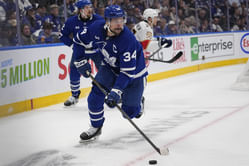
The Pittsburgh Penguins, commonly known as the Pens, are an NHL team based in Pittsburgh. Competing in the Metropolitan Division of the Eastern Conference, they have played their home games at PPG Paints Arena since 2010. Formerly, they played at the Civic Arena, known as "the Igloo." Established in 1967, the Penguins boast six Stanley Cup Finals appearances and five championships in 1991, 1992, 2009, 2016, and 2017.
They share the most Stanley Cup championships among non-Original Six teams with the Edmonton Oilers and rank sixth overall. Notably, they achieved back-to-back championships in 2016 and 2017, a first in the salary cap era. Hall of Famers include co-owner Mario Lemieux, pivotal in rescuing the team from bankruptcy in 1999, and players like Jaromir Jagr, Sidney Crosby, and Evgeni Malkin, who earned the Hart Memorial Trophy.
Pittsburgh Penguins mascot Iceburgh
Iceburgh is the mascot of the Pittsburgh Penguins, serving as the beloved, anthropomorphic representation of the team. For approximately two decades, starting around 1972, the Penguins operated without a mascot.
The inspiration to introduce a new one arose during the team's consecutive Stanley Cup victories and growing fan support. Debuting in the 1992-93 season, Iceburgh, resembling a majestic King Penguin, quickly became a fan favorite with its distinctive jersey number 00.
Iceburgh has since become one of the most recognized mascots in the United States, participating in community events, NHL All-Star Games, and even the opening of ESPN's SportsCenter.
Beyond the ice, Iceburgh's popularity extended to the media, including a feature in the 1995 film "Sudden Death." Known for engaging in community events and representing the Penguins at the NHL All-Star Game, Iceburgh has solidified its place as one of the most recognizable mascots in the United States.
Pittsburgh Penguins mascot History
The Pittsburgh Penguins' mascot history began with Penguin Pete in the early 1970s, a Humboldt penguin from the Highland Park Zoo. Tragically, Pete passed away in 1968, raising concerns about animal welfare. In an attempt to continue the mascot legacy, Re-Pete, another Humboldt penguin, debuted in the 1971-1972 season but had a brief tenure.
The modern era of Penguins mascots started around 1992 with the introduction of Iceburgh. Coach Bob Johnson's wife, Martha, proposed the idea of a new mascot, not a real penguin, influenced by the rights held by Youngstown State University over a penguin mascot named Pete.
Iceburgh, resembling a King Penguin and donning jersey number 00, quickly became a fan favorite. Beyond the ice, Iceburgh's fame extended to the big screen in the 1995 film "Sudden Death." Iceburgh, with its orange neck and black gloves, has become an integral part of the Penguins' history, contributing to the team's lively spirit and fan engagement.
Iceburgh Funny Incidents
Specific funny incidents involving Iceburgh, the Pittsburgh Penguins' mascot, are not detailed. Mascots often engage in playful and humorous interactions during games and events, creating lighthearted moments for fans.
FAQ's on Pittsburgh Penguins mascot Iceburgh
A. Iceburgh made his debut in the 1992-93 NHL season, quickly becoming a fan favorite with his distinctive jersey number 00.
A. Iceburgh is a widely recognized mascot, participating in events, NHL All-Star Games, and media appearances, including the 1995 film "Sudden Death."
A. No, Iceburgh's salary is not publicly disclosed, but NHL mascot salaries typically range between $40,000 and $60,000 annually.
A. Penguins' mascot history began with Penguin Pete in the 1970s, followed by attempts to continue the legacy with Re-Pete in the early 1970s.
A. Iceburgh's costume, resembling a King Penguin, has an orange neck and black gloves, distinguishing it from other mascots like Tux.









![[WATCH] Alex Ovechkin celebrates his 40th birthday over video conference with family and friends back in Russia](https://staticg.sportskeeda.com/editor/2025/09/68c79-17581787279017-1920.jpg?h=166)